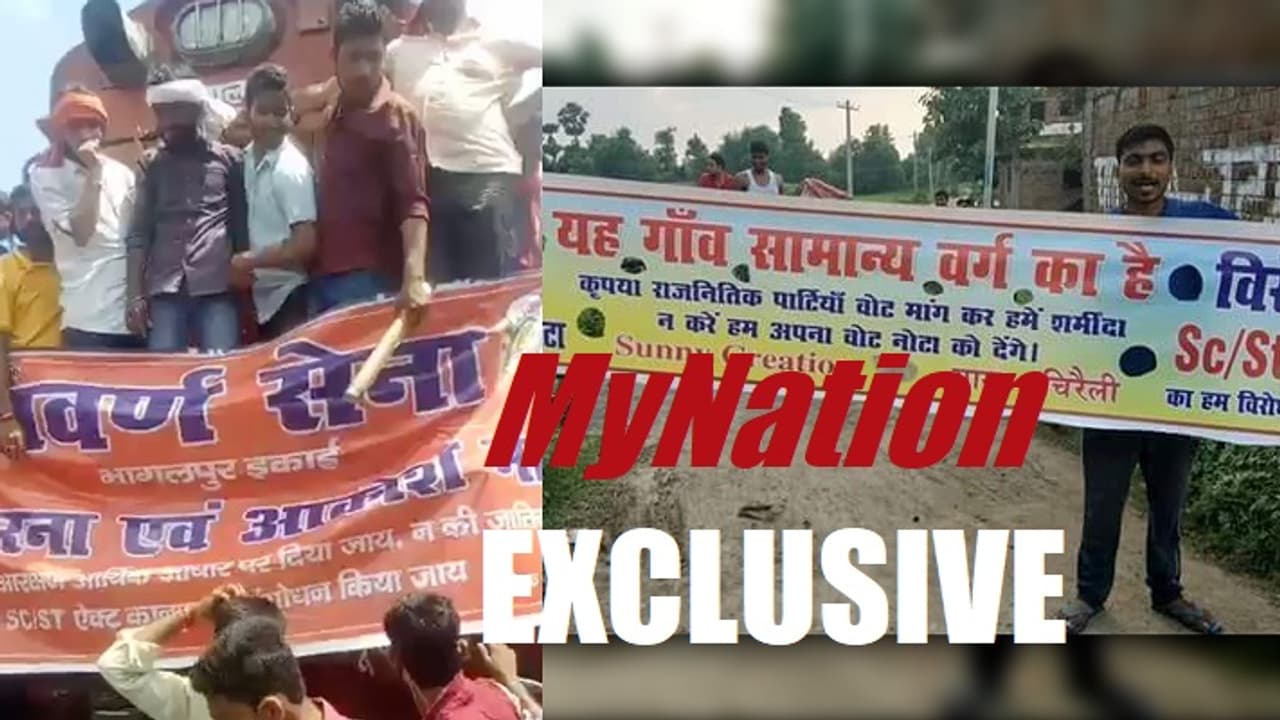The move is not likely to rattle the so-called lower castes as the new quota will not erode the existing quotas for the Scheduled Castes, Scheduled Tribes and the Other Backward Classes. Already, representatives of the 'downtrodden' in this government, Ramdas Athawale and Ram Vilas paswan, have advocated upper caste reservations. An upper caste movement that was gradually gaining momentum is now likely to fizzle out.
New Delhi: The Narendra Modi government is contemplating offering reservation to the poor among upper-caste Hindus. Deliberations are on at the topmost levels of the government and the party over introducing income-based reservation for castes so far kept out of reservations, a source in the government told MyNation, requesting anonymity.
The current reservation structure for Scheduled Castes, Scheduled Tribes and Other Backward Classes will not be disturbed. The idea is to carve out a separate category of reservation for upper castes without tinkering with the existing quotas. The government, sources said, may initiate steps as early as the coming Winter Session of Parliament.
For this, the cap for reservation above 50% will have to be raised by an amendment. Tamil Nadu, for example, has 69% reservation.
Interestingly, many upper caste voters have severely criticised the Modi government after it overturned the Supreme Court ruling on the Scheduled Castes Scheduled Tribes (Prevention of Atrocities) Act. While the apex court had added some safeguards against immediate arrest under the Act, the Centre passed an amendment in the Monsoon Session to reverse it.
Some organisations observed a Bharat Bandh, protested against the government’s stand. Many in social media called for a ‘NOTA Movement’ in the 2019 polls.
However, by introducing an economic criteria-based quota, the Modi government may checkmate all that resentment and the possibility of the opposition fuelling violent caste agitations before 2019 elections.
The BJP seems to have been testing waters for a while. Its Dalit MPs and allies have been publicly mooting the idea for upper-caste reservation.
Union minister of state for social justice and empowerment Ramdas Athawale had last Friday hinted at what could be coming in the Winter Session. He rooted for 25% reservation to the poor among the upper castes by jacking up the quota limit to 75%. He was joined by another Union minister Ram Vilas Paswan, who demanded a 15% reservation for upper castes.
Sources said the figure could be between 15% and 25%.
At the State level, such an attempt had been made in Gujarat. The State BJP government in 2016 had mooted a 10% reservation for general category for families earning under Rs 6 lakh a year, but the High Court quashed it. The Rajasthan government too tried a similar reservation for the poor among upper castes. But even this was quashed by the high court.
However, amending the law in Parliament may pave the way for introduction of economic criteria-based reservation.
